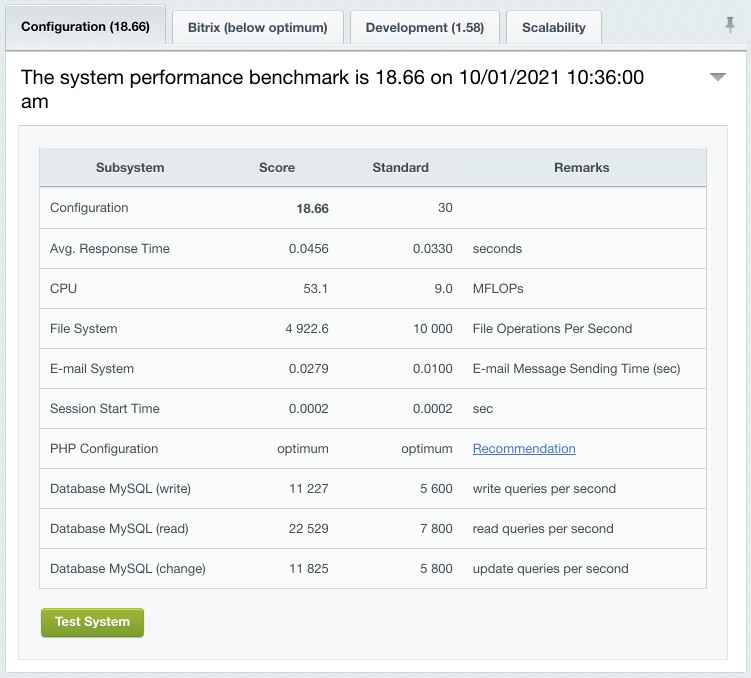Views: 3943
Last Modified: 04.10.2024
Configuration tab
The tab shows the current server subsystem performance parameters and their comparison with the reference system parameters.

When any subsystem doesn't satisfy optimal conditions, it shows a link with recommended reference values in the Note column.
The Most Common Configurations Issues
- No PHP accelerator installed.
Available PHP accelerators are vital for 3x faster page opening, even without additional page settings, with processor load decreased for as many times. The OPcache accelerator is supported.
- An open_basedir restriction is in effect.
It's difficult to separate individual customers at the shared hosting. This, in turn, brings about excessive CPU load because of additional pathname checks. The solution: use individual Apache instances for each user or install additional modules at the server to limit access. In this case, no restriction for open_basedir is required! System limits access for a web-server user.
- NGINX is not installed or configured.
Although, this doesn't affect performance score directly, it's extremely important for high-load projects: it's preferable for all static (images, styles, java scripts) to be relayed by NGINX and isn't processed by Apache. Overview Apache access logs: they shouldn't contain any static content!
- Database is not configured.
Use InnoDB data format whenever possible. You can find recommended settings at the Database server performance monitor page.
- Non-original equipment drives are installed.
This issue is common for RAID controllers: usually the system offers to install open source Linux drivers, which may not be optimized to a particular controller model. Always install the original drivers from developer's site.
- PHP as CGI.
Using PHP as CGI (not FastCGI) is a faulty practice.
The system launches new PHP interpreter instance for each PHP script query. Obviously, all this operates very slowly, with extremely low site performance.
Performance monitor doesn't have direct access to system resources, that's why scores, resulting from PHP tools mostly show PHP operation stats, not server's.